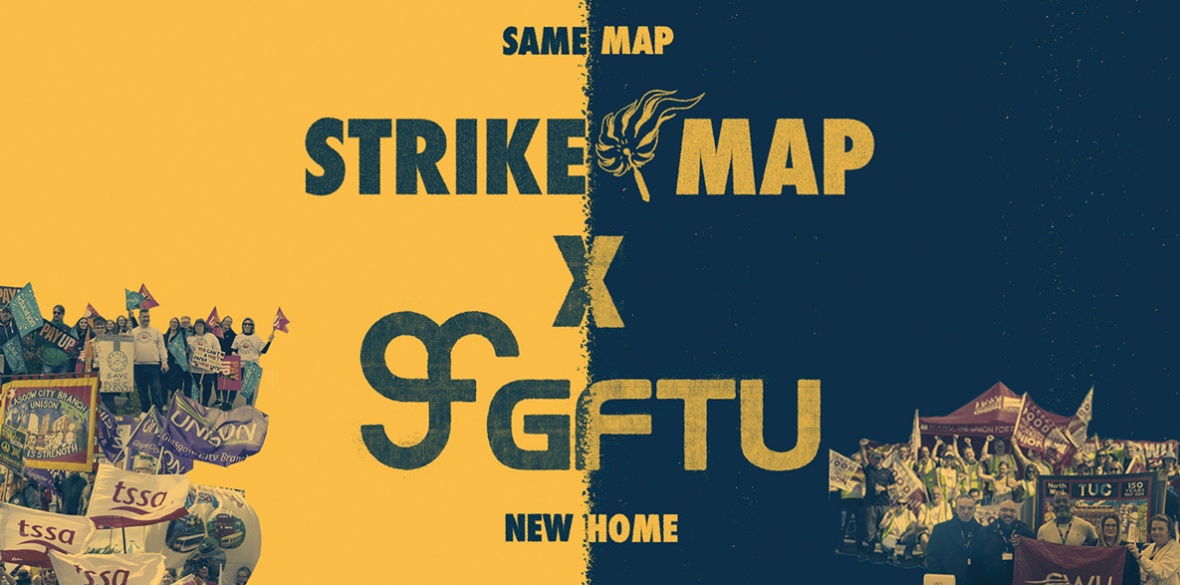This is the last article you can read this month
You can read more article this month
You can read more articles this month
Sorry your limit is up for this month
Reset on:
Please help support the Morning Star by subscribing here
THIS year’s TUC Congress takes place at an interesting point in time.
The cost-of-living crisis has sparked a wave of resistance from unions, with rail workers, postal workers, education workers, health workers, council workers, steelworkers and many more taking action against declining living standards.
Trade unions have once again been in the news and the national consciousness. Public approval ratings for unions are higher than they’ve been for decades.
We really have seen a revival of the movement and unions have won pay increases that are a real and significant improvement on what they have been offered.
This would have been impossible without members’ action and activism, without the work that has gone into building ballots and smashing thresholds.
However, we still face real challenges.
In spite of the real improvements that have been won through strike action and the threat of strike action, the vast majority of pay awards have been below inflation, meaning that they are in fact real-terms pay cuts.
This is not the fault of unions which have fought and won improved settlements but it does reflect a significant weakness in the movement. We are not in a position to force above-inflation pay awards across the board.
Much of this weakness rests on the hostile environment within which trade unions are operating, with the most vicious and restrictive anti-union laws in western Europe.
Unions are forced to fight with one hand tied behind their back, with bans on solidarity action, secondary picketing, political strikes — all basic tools of working-class solidarity.
Ballot thresholds designed to make action impossible further restrict unions and, in the face of these being achieved by innovative campaigns and effective organising and mobilisation, the government now wants to effectively take away the right to strike in key sectors of the economy.
The minimum services legislation attempts to force workers in these sectors to cross their own union’s picket lines, in order to frustrate any effective action.
Several unions have expressed their willingness to fight back against this legislation, calling all-out action to defend any worker victimised by its implementation, but this is far from a generalised position across the movement.
The reality is that too many unions don’t feel strong enough to take on the combined might of government and the employers.
In order to fight back both against the legislation that restricts workers’ rights, and to defend working-class living standards, we need a much stronger movement at every level.
We need to be building activism and leadership in the workplace, developing leadership in the regions and nationally, and organising in underorganised sectors of the economy.
As a movement, we must stop competing over organised workers and begin to take seriously the challenge of organising the unorganised.
All of this means systematic trade union education across our movement. That education, which should include political and economic education and working-class history, must reach new activists entering the movement, building a new layer of leadership which can take on the challenge of renewing our trade unions.
This is the point of our new partnership with Strike Map — to link the hundreds of thousands of activists who have used the site to send solidarity messages and attend picket lines with high-quality trade union education, support and mentoring to build this new layer of leadership.
The challenge to renew our unions is real. We can avoid it no longer. We must build a movement capable of fighting back and winning.
Gawain Little is general secretary of the General Federation of Trade Unions.
You can access the GFTU education programme, provided by the GFTU Educational Trust, at gftuet.org.uk/education.
Sign up to Strike Map at strikemap.org.










